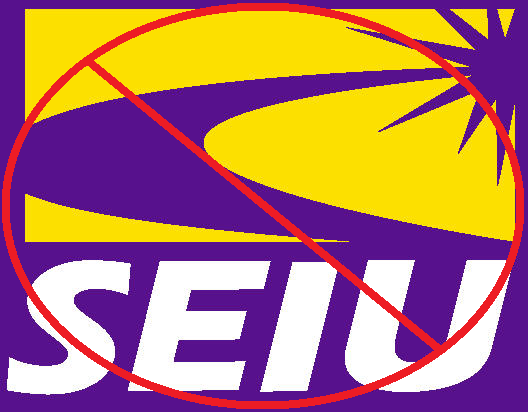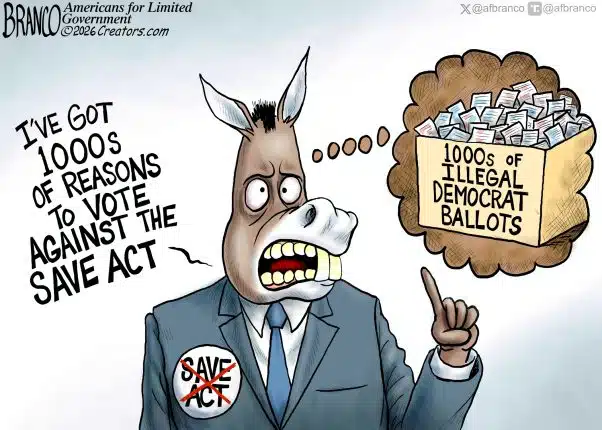By Richard McCarthy
As originally published at http://seiumonitor.com/court-ruling-cost-seiu/
The Supreme Court has agreed to consider the case of Janus v. American Federation of State, County and Municipal Employees (AFSCME). Mark Janus is a public employee in Illinois, who is suing the union for compelling him to pay “agency fees” to AFSCME in spite of the fact that he is not a member and does not support the organization.
Just last year, after the death of Justice Antonin Scalia, the Supreme Court split 4-4 in the Friedrichs case, which was very similar to the Janus case. Scalia’s replacement, Justice Neil Gorsuch, is widely expected to side with the justices who opposed forcing public employees to pay fees to unions to keep their jobs. If the Court does rule that way, the effect would be similar to passing a National Right to Work Act for the public sector.
If the predictions about the Court’s ruling are correct, SEIU is likely to lose both members and revenue. After all, over half of SEIU’s members are public employees, according to the union’s website. The main question is how much will SEIU lose, but unions are expecting a sizeable effect. “Unions that operate in both ‘right to work’ and ‘fair share’ states say the shift could drive down membership by 15 percent to 30 percent.”
The experience of states that have passed Right to Work legislation (that applied to public sector employees) over the past few decades might provide some clues as to what the impact of Janus could be. In 1985, Idaho passed Right to Work legislation. Five years later, public employee union membership in Idaho had fallen 1.5 percentage points (from 19.8 percent to 18.3 percent). In 2001, Oklahoma enacted a Right to Work law. Public employee union membership over the next five years declined 1.5 percentage points in that state also (from 20.2 percent to 18.7 percent). In 2012, Michigan passed Right to Work legislation. The changes in Michigan were significantly larger, perhaps due to the fact that the public employee union membership rate was much higher than the rates had been in Idaho and Oklahoma. Over the next four years (The 2017 union membership numbers are not yet available.), public union membership dropped 8 percentage points (from 54.3 percent to 46.3 percent) in that state.
As a result of the Janus decision, SEIU’s political allies are likely to lose as well. For example, a recent study of neighboring counties by James Feigenbaum, Alexander Hertel-Fernandez, and Vanessa Williamson found that Right to Work laws have a significant impact on election results and campaign finance.
According to the study, “Comparing counties on either side of a state and right-to-work border to causally identify the effects of the state laws, we find right-to-work laws reduce Democratic presidential vote shares by 4-6 percentage points. We find similar effects in US Senate, US House, and gubernatorial races, as well as state legislative control… right-to-work laws dampen labor campaign contributions to Democrats… In states with RTW laws, the total share of campaign contributions owing from unions falls by about 1.25 percentage points following the passage of RTW laws. The share of overall contributions collected by Democratic candidates also falls significantly following the enactment of RTW laws. Democrats thus appear unable to replace union funding from other sources and they raise and spend less money after RTW laws pass.”
In addition, both union members and union bosses are likely to see financial changes as a result of the Court’s ruling. According to the Heritage Foundation, “Union financial reports reveal that they charge workers roughly 10 percent higher dues and pay their full-time top officers $20,000 more annually in states with compulsory dues.” So without compulsory dues, public employee union members might well see smaller amounts of dues being deducted from their checks, and highly-compensated union bosses might well see slightly smaller paychecks.
More than likely, big changes are in store for SEIU starting next year. Perhaps the Court’s ruling will finally force SEIU to take the political views of its members more seriously and not simply pursue whatever agenda SEIU’s bosses favor. And, perhaps, after years of ignoring and repeatedly disrespecting its members, SEIU will feel compelled to be more responsive to them.
Richard McCarthy is the Director of Research for the Americans for Limited Government Foundation







